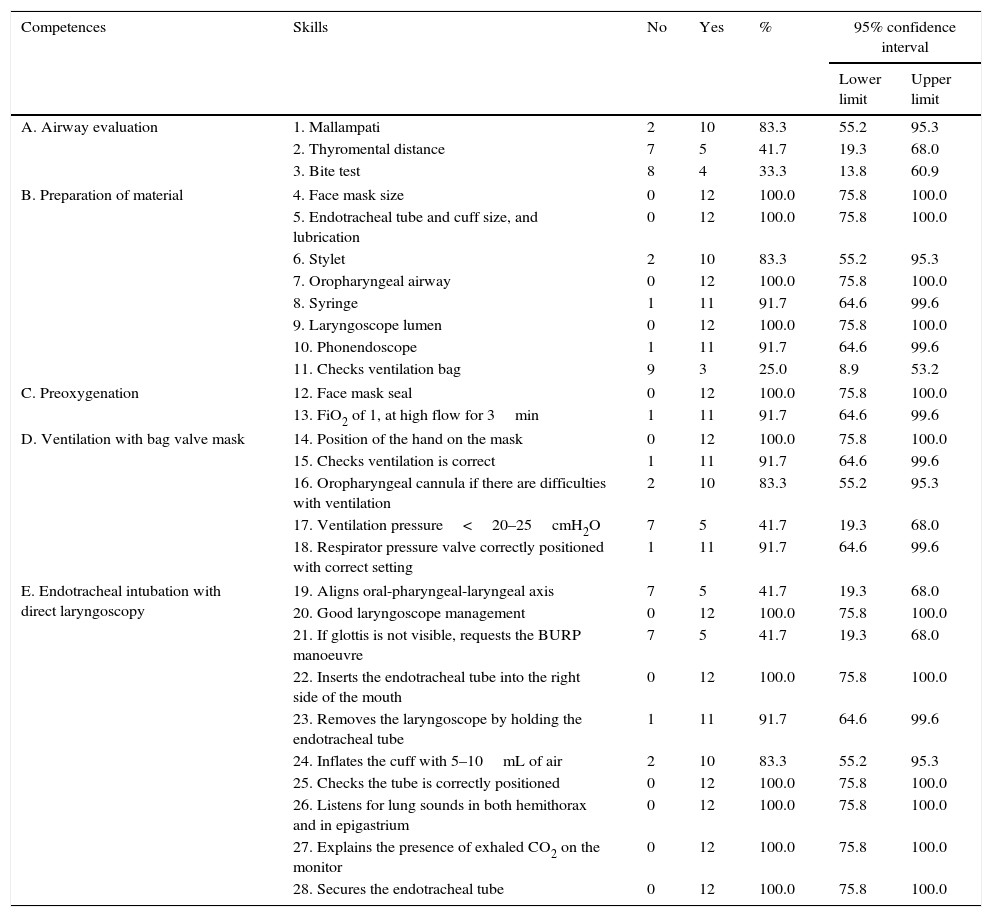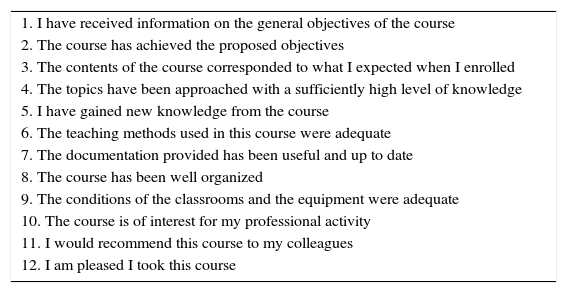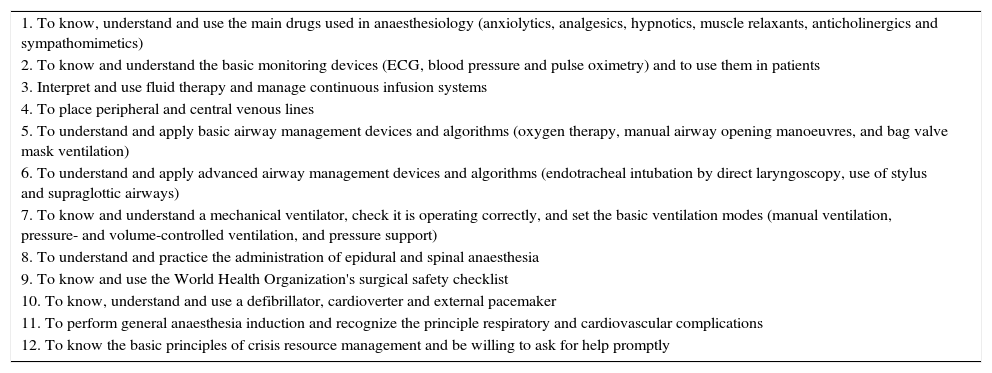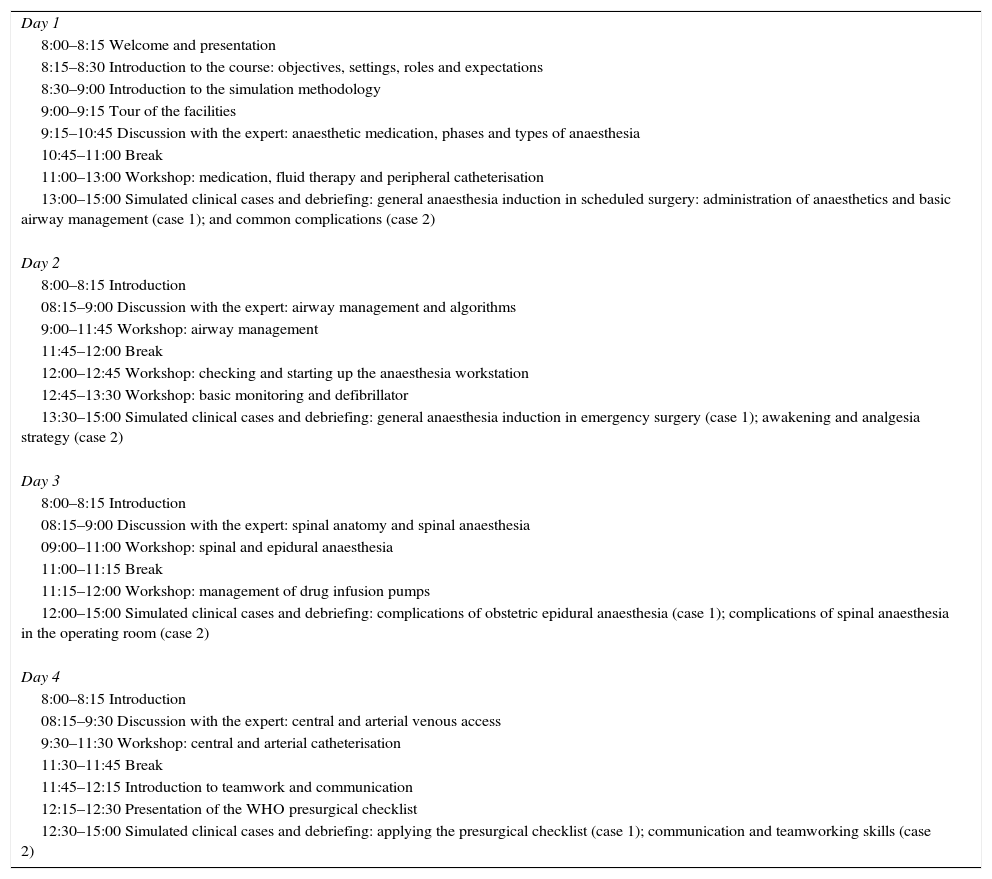An increased number of errors and reduced patient safety have been reported during the incorporation of residents, as this period involves learning new skills. The objectives were to evaluate the learning outcomes of an immersive simulation boot-camp for incoming residents before starting the clinical rotations. Airway assessment, airway control with direct laryngoscopy, and epidural catheterization competencies were evaluated.
Material and methodTwelve first-year anaesthesiology residents participated. A prospective study to evaluate transfer of endotracheal intubation skills learned at the simulation centre to clinical practice (primary outcome) was conducted. A checklist of 28 skills and behaviours was used to assess the first supervised intubation performed during anaesthesia induction in ASA I/II patients. Secondary outcome was self-efficacy to perform epidural catheterization. A satisfaction survey was also performed.
ResultsSeventy-five percent of residents completed more than 21 out of 28 skills and behaviours to assess and control the airway during their first intubation in patients. Twelve items were performed by all residents and 5 by half of them. More than 83% of participants reported a high level of self-efficacy in placing an epidural catheter. All participants would recommend the course to their colleagues.
ConclusionsA focused intensive simulation-based boot-camp addressing key competencies required to begin anaesthesia residency was well received, and led to transfer of airway management skills learned to clinical settings when performing for first time on patients, and to increased self-reported efficacy in performing epidural catheterization.
Se han evidenciado más errores y menor seguridad de los pacientes durante el periodo de incorporación de los residentes. Se evaluaron los resultados de aprendizaje de las competencias de valoración y control de la vía aérea, y cateterización epidural tras un curso de introducción a la anestesiología basado en simulación clínica antes de comenzar las rotaciones.
Material y métodoParticiparon 12 residentes de anestesiología. Se estudió la transferencia de las competencias aprendidas durante el curso a la clínica (variable principal). Se utilizó una rúbrica de 28 habilidades y comportamientos para evaluar la primera intubación supervisada en pacientes ASA I/II. La variable secundaria fue el grado de autoeficacia para realizar la cateterización epidural y se valoró mediante preguntas de autoevaluación. Se realizó una encuesta de satisfacción. Se describieron las variables cualitativas (método Wilson) y las numéricas con la media y la desviación estándar (tras la prueba de Shapiro-Wilk).
ResultadosDurante la primera intubación en pacientes se encontró que el 75% de los participantes completaron más de 21 habilidades de valoración y control de la vía aérea de un total de 28. Doce fueron completadas por todos ellos y 5 por la mitad. Más del 83% de los participantes refirieron un alto grado de autoeficacia para la cateterización epidural. Todos los participantes recomendarían el curso.
ConclusionesEl rendimiento de los residentes de anestesiología al realizar por primera vez en pacientes la valoración y control de la vía aérea, y el grado de autoeficacia para la cateterización epidural fueron elevados tras un curso intensivo de simulación al comenzar la residencia.














